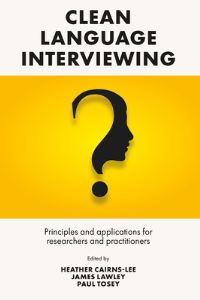In his paper on robustness and fragility, Taleb identifies what makes us Black Swan prone. Debt is his first villain. His second is the complexity of the modern world which:
Since the 1980s and the invention of the internet, has become much more difficult to predict and even more subject to forecasting errors.
The third villain is bigness. The obesity of some corporations and institutions adds to the likelihood of Black Swan blindness and the potential for catastrophic failure. There are no companies (especially banks) that are ‘too big to fail’, only entities that are too big to contemplate failing. Taleb says:
”There are advantages that are cosmetic in getting larger. But economies of scale are misleading. The risk is disproportionate to economies of scale and wipes [large firms] out.“
Growing fast can create conditions whereby a single random event can wreak havoc. Think of the number of failed airlines that grew too quickly for their own good. Taleb’s solution is not to change our nature – he says we can’t. And it is not about ignoring the dangers, that only makes them more likely to happen:
“The solution is to be protected as much as you can from these events. We have to get society prepared, beforehand, for mass irrationality. People argue against rumors, bubbles and emotion in the market. But the market is emotional. We need to build a system that can handle this; handle emotion, handle rumours and handle irrationality.”
I’d suggest that these ideas are not exactly “solutions”, since they do not solve the problem. They are more principles for a society to live by. I see no reason why they shouldn’t apply to individuals too. We need to be prepared to handle our and other’s emotions, stories, speculations, irrationalities and unconscious biases. Hard as it is, and common as engineering metaphors are, achieving this will mean accepting that:
“socio-economic [and I’d add psychological] life does not have the same properties as the engineering world where you can figure out margins accurately and effectively.”
Taleb suggests that:
“Maybe the best form of organic prevention is to be nice to your neighbors rather than having a big army. What we need is a commerce driven world rather than a top-down militaristic system.”
For ‘commerce’ read bottom-up, flexible and based on what happens rather than operating out of theories and tightly controlled hierarchies. Taleb isn’t against regulation, far from it. He says we need it to help the small guy and to protect society against the risk-takers. But we need to devise our measures and rewards very carefully. And we must accept the consequences of our actions – even if we didn’t intend for things to turn out the way they did.
Marvin Minsky introduced the metaphor of The Society of Mind. If we regard mind as a society then everything that Taleb says can apply to an individual. That means giving the ‘small quiet voice’ its due. That means appreciating what we are risking when we take out a mortgage at five, six, or seven times our current income, when we contemplate a secret affair, when we blow our savings on a whim. I’m not saying don’t do these things. I’m saying look the risks squarely in the eye before you do. It’s no good later singing “You don’t know what you’ve got until it’s gone”.
And the final word goes to Taleb:
“In the long run, everything that is Black Swan fragile will break. You cannot change [this aspect of] the world. We have to learn how to live with it instead.“
[Minor amendments 2 Feb 2011]
I gave an extensive presentation of Taleb’s ideas and their relevance to our work at the 2013 Clean Conference: Antifragility, Black Swans and Befriending Uncertainty.
For more on robustness and resilience in relation to network theory and self-organising systems see my notes, Thinking Networks II.







